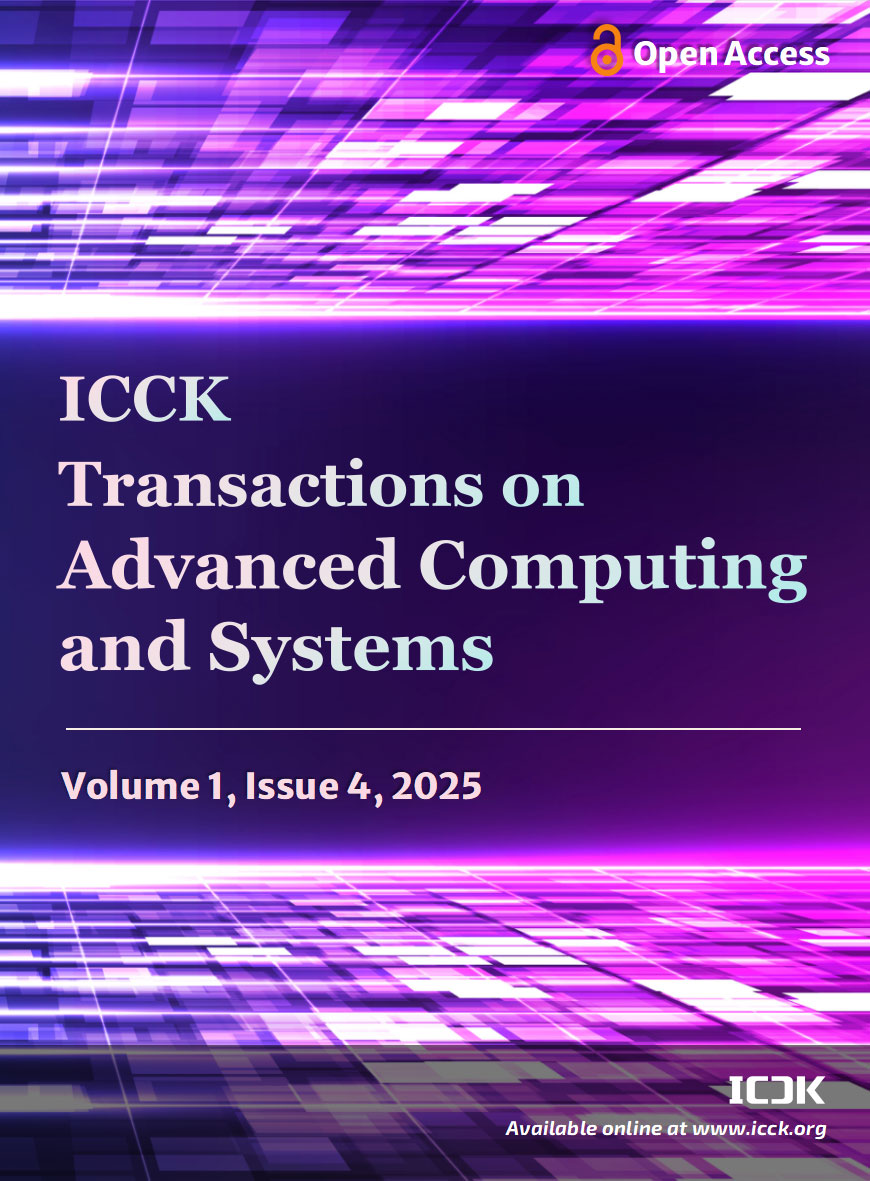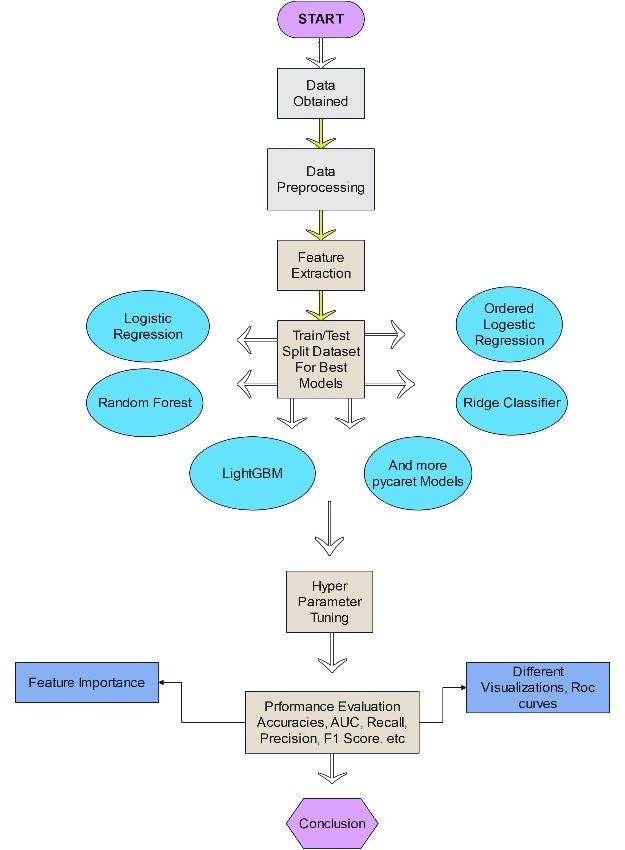Abstract
This paper examines the vulnerability of Small and Medium-sized Enterprises (SMEs) exposed to evolving climate changes in Pakistan, specifically the impacts of extreme weather events, including floods and drought. The earlier literature illustrates that SMEs are affected by climate-related risks, but the current study takes the discussion further by implementing machine learning algorithms to measure the vulnerabilities of SMEs more objectively. A mixed-methods design was used to combine surveys with machine-learning techniques. PyCaret was employed to tune instruments such as Logistic Regression (LR), Random Forest (RF), ordered logistic regression, LightGBM, ADA Boost, SVM, KNN, GBC, and Naïve Bayes, among others, in Python. The results show that SMEs located in rural regions are significantly more vulnerable to climate events than SMEs in urban areas. The best results were found by the Logistic Regression model: its accuracy was 63.3%, recall 63.3%, F1-score 55.2%, and Kappa value 0.23. Random Forest showed similar findings, but Logistic Regression proved stronger in diagnosing the influence of climate on business activity. Ordered logistic regression-based analyses show that awareness of temperature fluctuation (p = 0.035) and perceived financial impact (p = 0.018) significantly affect the degree to which firms are affected by climate-related impacts, while geographic locations (p = 0.057) and business tenure (p = 0.091) are only marginally important. Strict evaluation of empirical evidence has pointed out that the application of focused financial tools, extensive infrastructure, and governance framework transformation can help to make the small- and medium-sized enterprises, especially enterprises located in remote areas to be more resilient to climate-related risks.. Further studies may improve this analysis through a more detailed machine-learning framework and analysis of sector-specific effects of climate change in specific geographic areas.
Keywords
climate change
small and medium enterprises (SMEs)
machine learning
logistic regression
PyCaret
climate risk
Data Availability Statement
Data will be made available on request.
Funding
This work was supported without any funding.
Conflicts of Interest
The authors declare no conflicts of interest.
Ethical Approval and Consent to Participate
Not applicable.
Cite This Article
APA Style
Ullah, U., Khalil, A., Rehman, A., Ullah, S., Hassan, S., & Sani, M. (2025). Innovative Machine Learning Approaches for Evaluating Climate Change Vulnerabilities of SMEs. ICCK Transactions on Advanced Computing and Systems, 1(4), 275–290. https://doi.org/10.62762/TACS.2025.395911
Publisher's Note
ICCK stays neutral with regard to jurisdictional claims in published maps and institutional affiliations.
Rights and Permissions

Copyright © 2025 by the Author(s). Published by Institute of Central Computation and Knowledge. This article is an open access article distributed under the terms and conditions of the Creative Commons Attribution (CC BY) license (
https://creativecommons.org/licenses/by/4.0/), which permits use, sharing, adaptation, distribution and reproduction in any medium or format, as long as you give appropriate credit to the original author(s) and the source, provide a link to the Creative Commons licence, and indicate if changes were made.


 Submit Manuscript
Edit a Special Issue
Submit Manuscript
Edit a Special Issue

 Copyright © 2025 by the Author(s). Published by Institute of Central Computation and Knowledge. This article is an open access article distributed under the terms and conditions of the Creative Commons Attribution (CC BY) license (https://creativecommons.org/licenses/by/4.0/), which permits use, sharing, adaptation, distribution and reproduction in any medium or format, as long as you give appropriate credit to the original author(s) and the source, provide a link to the Creative Commons licence, and indicate if changes were made.
Copyright © 2025 by the Author(s). Published by Institute of Central Computation and Knowledge. This article is an open access article distributed under the terms and conditions of the Creative Commons Attribution (CC BY) license (https://creativecommons.org/licenses/by/4.0/), which permits use, sharing, adaptation, distribution and reproduction in any medium or format, as long as you give appropriate credit to the original author(s) and the source, provide a link to the Creative Commons licence, and indicate if changes were made. 
